MAI as Alma Mater for Cosmonauts

Cooperation between MAI and Gagarin Research & Test Cosmonaut Training Center (GCTC) in 2019 achieved a “new orbit”: new joint plans on how to train cosmonauts and specialists for space industry starting from bachelor’s program and how to use MAI scientific developments in the interest of the GCTC.
In February 2019, Gagarin Research & Test Cosmonaut Training Center (GCTC) was visited by MAI delegation led by Rector Mikhail Pogosyan. The roadmap of joint work was discussed, it included two blocks: educational and scientific. “We have big hopes for this cooperation,” comments Olga Tushavina, Dean of the Institute №6 “Aerospace”. Previously, the relationship mainly was limited by student excursions to the GCTC and their job placement. Also, MAI students, selected to the cosmonaut detachment, went to the Star City. Now the strategy of joint development is thought over thoroughly and systematically.
Engineering Personnel for Space
In the base of MAI and GCTC joint initiative lies the idea dictated by time: it is important to train cosmonauts in university with new professional standards in mind and not after they graduate.
“We have extensive experience in training students, who later became cosmonauts,” proudly says Dean of Aerospace Institute. “23 MAI graduates have already been in space. Two MAI students (Nikolay Tikhonov and Andrey Babkin) are included in the crew preparing for the flight, planned in 2020, and hopefully they will be first to work in the new laboratory module “Nauka” which Roscosmos is going to send to the International Space Station”.
Gagarin Research & Test Cosmonaut Training Center confirms the importance of recruiting MAI graduates with high engineering qualifications. Until 2009, the GCTC was a military organisation and the issue of sending graduates of military universities to the Center was solved easily, but now no one purposely prepares graduates for the GCTC.
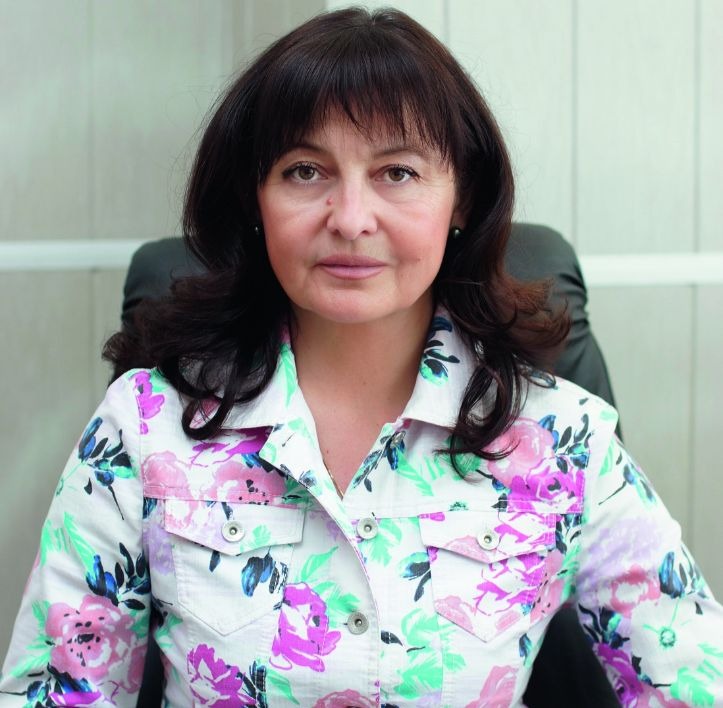
“We created and officially accepted two professional standards: “cosmonauts preparing specialist” and “specialist in technical mean of cosmonauts training”, shares Chief of the GCTC Scientific Department Andrey Kuritsyn. “In Russia only GCTC is involved in training cosmonauts, but it is possible to identify potential cosmonauts on a student’s bench and help them decide on this path, there are a lot of examples of it. Moreover, a unique basis of cosmonaut training can be also used in preparation of personnel for other enterprises of Roscosmos”.
Dreaming of Space in Russia
- Dreamed of becoming a cosmonaut in childhood – 13%
- Know their friends dreamed about it – 21%
- Dream of space even in adulthood – 38%
- Think cosmonaut job will always be in demand – 74%
Source: State Space Corporation ROSCOSMOS
From Students to Cosmonauts
Will it be possible to apply for a “cosmonaut” at MAI? Yes! In the near future, Aerospace Institute plans to launch bachelor’s degree program to educate professionals in this area with its own curriculum, with special disciplines agreed with the GCTC, with targeted theoretical and practical training.
There are even plans to provide physical and psychological training, as well as medical examination of future applicants to the cosmonaut detachment. “If a young man sees himself in the profession of a cosmonaut, why don’t we help him? We will discuss how to do it: as part of the curriculum or optional”, says Andrey Kuritsyn.
Already in 2019/2020 academic year a master’s degree program with state-funded places will appear in MAI in the interest of Gagarin Research & Test Cosmonaut Training Center. Representatives of the GCTC will give classes on their subject. It is also planned to increase the volumes of student practices on the base of the GCTC. “Almost all students on master’s program are already working somewhere, they can fairly work in the GCTC”, notes Olga Tushavina.
In addition, MAI together with GCTC will improve skills of specialists of the GCTC. Program of retraining “teacher-researcher” was agreed, within the framework of which MAI employees will conduct classes with the GCTC employees. Besides the Aerospace Institute, Institute №5 “Economics in Engineering and Humanities” is involved in the implementation of the program.
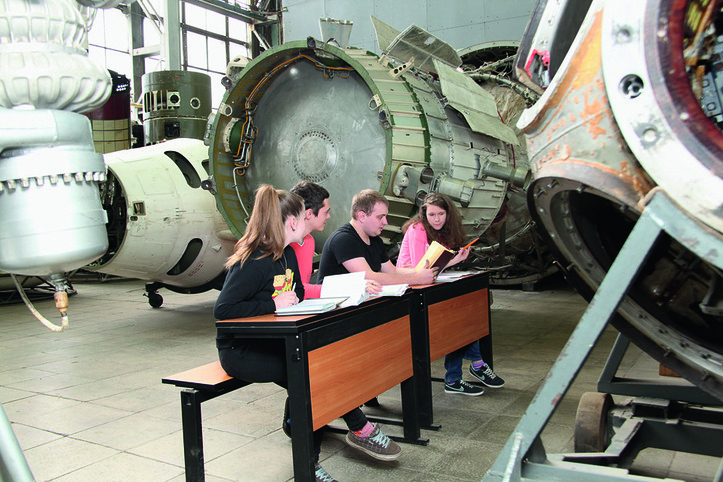
We Need the Best
In the field of life-support systems, MAI and GCTC joint research on increasing the ergonomics of prospective manned space complexes are planned. Cosmonauts will take a direct part in the project: with the help of a research stand being designed for the GCTC, they will be able to work on the creation of convenient and functional control systems and try them in practice. “Within the implementation of such scientific projects, we will launch a complete project training for senior students, who will later work in PAO RSC Energia and in the GCTC,” says Dean of the Aerospace Institute, Olga Tushavina. “There is a high demand for personnel renewal at the aerospace enterprises. It is necessary to train young specialists with non-standard thinking who can solve complex and integration problems. As a part of their training at MAI, they gain experience, working on promising projects in human space exploration”.
Cooperation in Science
As a part of joint research program, the Aerospace Institute offered to use in Star City its R&D (research & development) in the field of simulator construction and ensuring life-support of cosmonauts in manned flights.
One of joint projects is a research innovative network of virtual reality designed to train cosmonauts, carry out applied tests and experiments. Individual simulators – components of the network – have already been created in MAI. Now the challenge is to integrate them to a daisy chain. The network will help entirely and with high accuracy to replicate the conditions of work in space (for example, on a virtual International Space Station or “on board” of future aircraft for manned flights). This will reduce the time of crew training for new flight tasks.
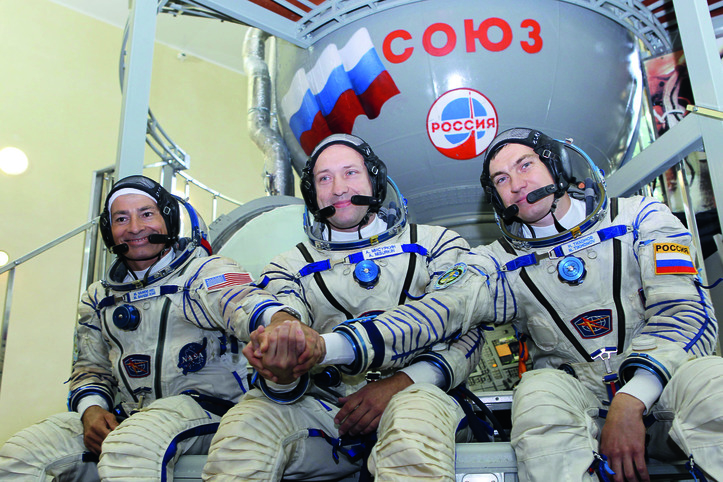
“In the VR we can work out planetary exploration, missions or landing on the surface of the Moon or Mars, replicating its structure and map by simulating soil composition and density”, explains Olga Tushavina.
On this project will also work the Faculty №1 “Aircraft Engineering”, Institute №7 “Robotic and Intelligent Systems” and Institute №9 “General Engineering Training”.
Dreams and Profession
Students of the Aerospace Institute will traditionally take part in a new selection for the cosmonaut detachment, which will be held in 2019/2020. Many people are interested, but not everyone will pass strict requirements on health and the level of knowledge. Although, Dean of the Institute №6 is sure that there is no reason to give up your dream.
“The profession of a cosmonaut can be compared to the career of professional athletes who spend their lives pursuing their goal,” thinks Olga Tushavina. "Cosmonauts themselves at the meeting with students warn: “You can wait for a flight for 10 or 20 years but nothing is better than that – you will always dream to come back. Nevertheless, at the GCTC there are many high-level professionals who never been in space. Cosmonautics needs not only those who fly but also those who will prepare flights on the Earth, train cosmonauts, examine a variety of factors and extreme situation in space flights”.
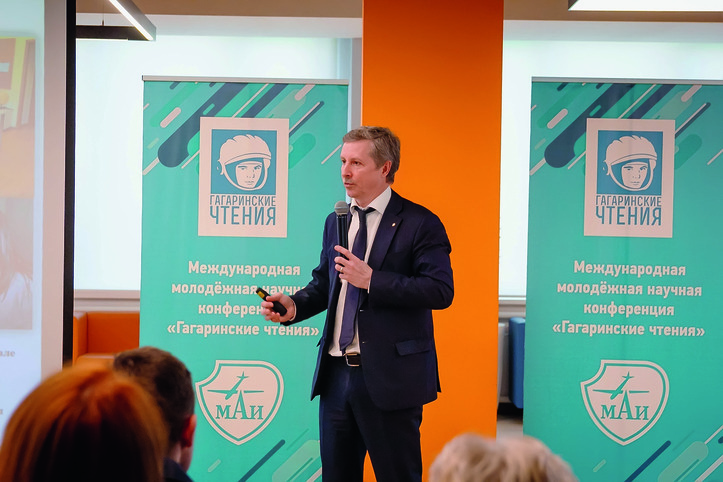
Employees of the GCTC participated in the MAI career guidance events many times. At the spring open day event of the Institute №6 “Rocket and Space Systems” direction, a lecture of the GCTC “How to become a cosmonaut” went with flying colors and aroused a great interest among students and applicants. In summer, within the framework of the MAI admission campaign, representatives of the GCTC plan to meet with prospective students.
Cosmonaut Nikolay Tikhonov
MAI graduate of 2005, Nikolay Tikhonov passed the selection for the cosmonaut detachment in 2006. Later he worked in PAO RSC Energia, in the Mission Control Center, an assignment to the backup crew of the ISS-49/50 expedition in 2016, training in the ISS-51/52 and ISS-57/58 crew. Starting from April 2019, Nikolay Tikhonov is preparing for the space flight as a crew commander of ISS-63/64 alongside another MAI graduate, onboard engineer Andrey Babkin. The launch is planned on March 20, 2020, the day of 90th anniversary of Moscow Aviation Institute.
“THIS IS THE MOST INTERESTING JOB YOU CAN IMAGINE”
What stages and tests during preparation were the most difficult for you?
All stages are difficult enough but all can be overcome. The stage of general space training and state examination has been left behind. During the long second stage of training the ISS specialization group, we passed more than a hundred exams on each system of the International Space Station. In this period, I had been working for 2 years in the Mission Control Center as a chief operator – I visited “the other side of the monitor” and also took part in prelaunch preparation of “Soyuz TMA-20”. Now we have the third stage – crew training. At first, Andrey Babkin and I both were onboard engineers, but now we are working over role distribution in certain tasks. The scientific program of the flight is revealed as well as a program of planned repairs on board – we are preparing according to our expedition flight plan.
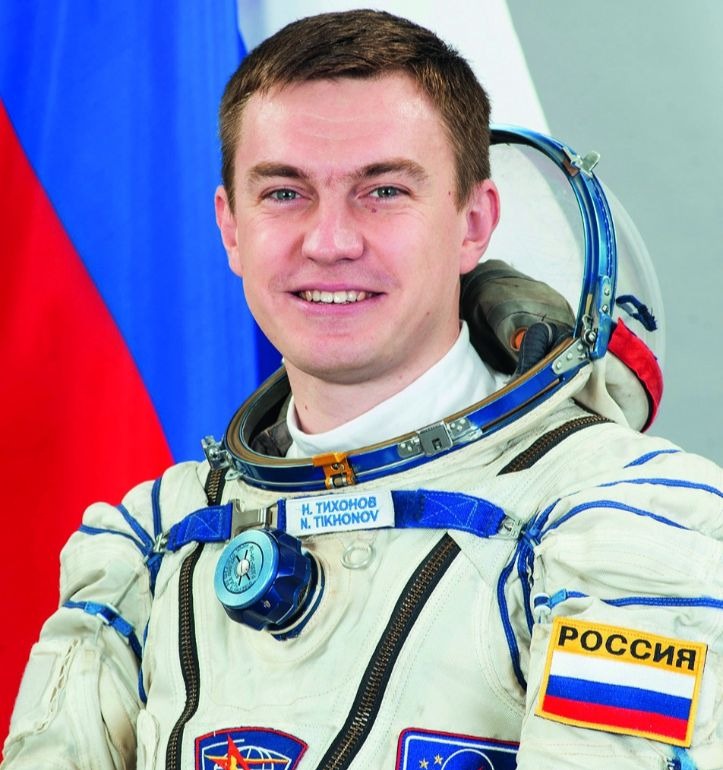
Is it easy to find a common language for two MAI graduates?
Me and Andrey have similar stories: we worked at the same department in PAO RSC Energia, almost in the same specialization. Therefore, we actually think similarly: mindset, ways of analysis information. Perhaps, training in MAI has something to do with it.
What knowledge and competency gained in MAI were the most useful?
I graduated from the Department 604 “System Analysis and Management”. There I was taught a systematic approach to solving any issues, and systematic thinking helped me a lot in all preparation. Cosmonaut is, in fact, a system engineer aboard a spaceship, and during preparation he must learn to understand how to connect all systems in one, all vital object on station, devices and components, how they work with each other.
What did you have to learn from scratch after university?
The arrangement of the ship and the station. Another thing helped me here: before the university I studied in the laboratory of radio and aerospace simulation in my hometown Novomoskovsk, Tula Region, and knew a lot since childhood.
Did you know that you will become a cosmonaut and will be preparing for the space flight when you were a little boy?
It’s not that I knew, I just really wanted it but surely didn’t believe it will happen. There was a stereotype that cosmonauts are unreal people who have never been ill in their life, and I both was sick and had a sore throat. Later, in high school, when we were participating in contests and conferences, meeting with hero cosmonauts and listened to their stories, this stereotype began to blur. It became obvious that a cosmonaut is also a job, a very interesting and unusual, but a job.
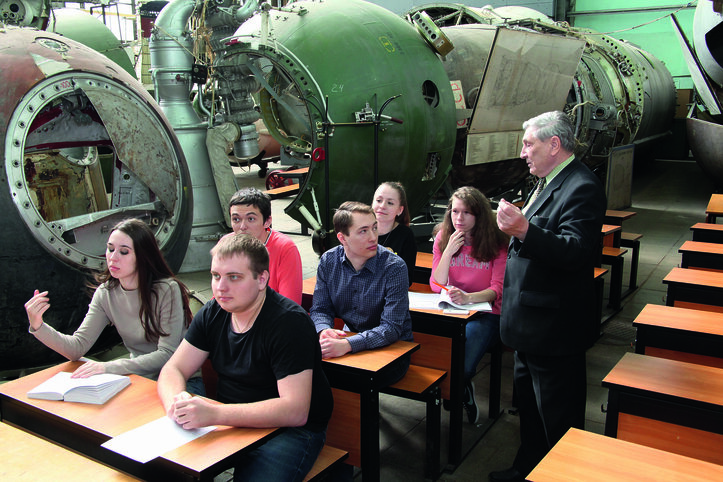
On the 4th year of study I had an opportunity to take part in PAO RSC Energia program: senior students of Moscow leading universities were offered to try their hand and pass a medical examination to join the cosmonaut detachment. A doctor gave me a list of comments on health, but additionally said they are removable: you have to practice, be treated and have an operation. I followed their recommendations and about six months later tried to pass a medical exam again. This time I received a positive conclusion.
Why did you enter MAI to become a cosmonaut?
There was a story. When I was studying at the school, All-Union Space Society “Soyuz” held many conferences and contests. As a result of one of the contests, I received a right to enroll in Bauman Moscow State Technical University or another - Moscow Aviation Institute. My friend and I participated in all competitions together, but he wasn’t as lucky at the Bauman conference. We both could apply to MAI and decided to do it together.
What do current MAI students, who dream of space, have to do, for what they should be prepared and why does it worth it?
Job in space industry is probably the most interesting you can imagine. We train in unique places. For many people, it is a lifelong dream: try to fly and jump with parachute, dive underwater in a diving dress. Every day is not like the previous. It’s not a narrow specialized field, it’s an opportunity to constantly look around and gain a lot of experience.
I wish students one thing – to study! Indeed, though I have a principle not to regret anything, years later I want to return something and make it better. When we were told “you need to study!”, we would turn on deaf ears. By all counts, the most important is to learn how to study, learn how to gain knowledge, thirst for new knowledge. This is generally useful in life, and especially important for space.